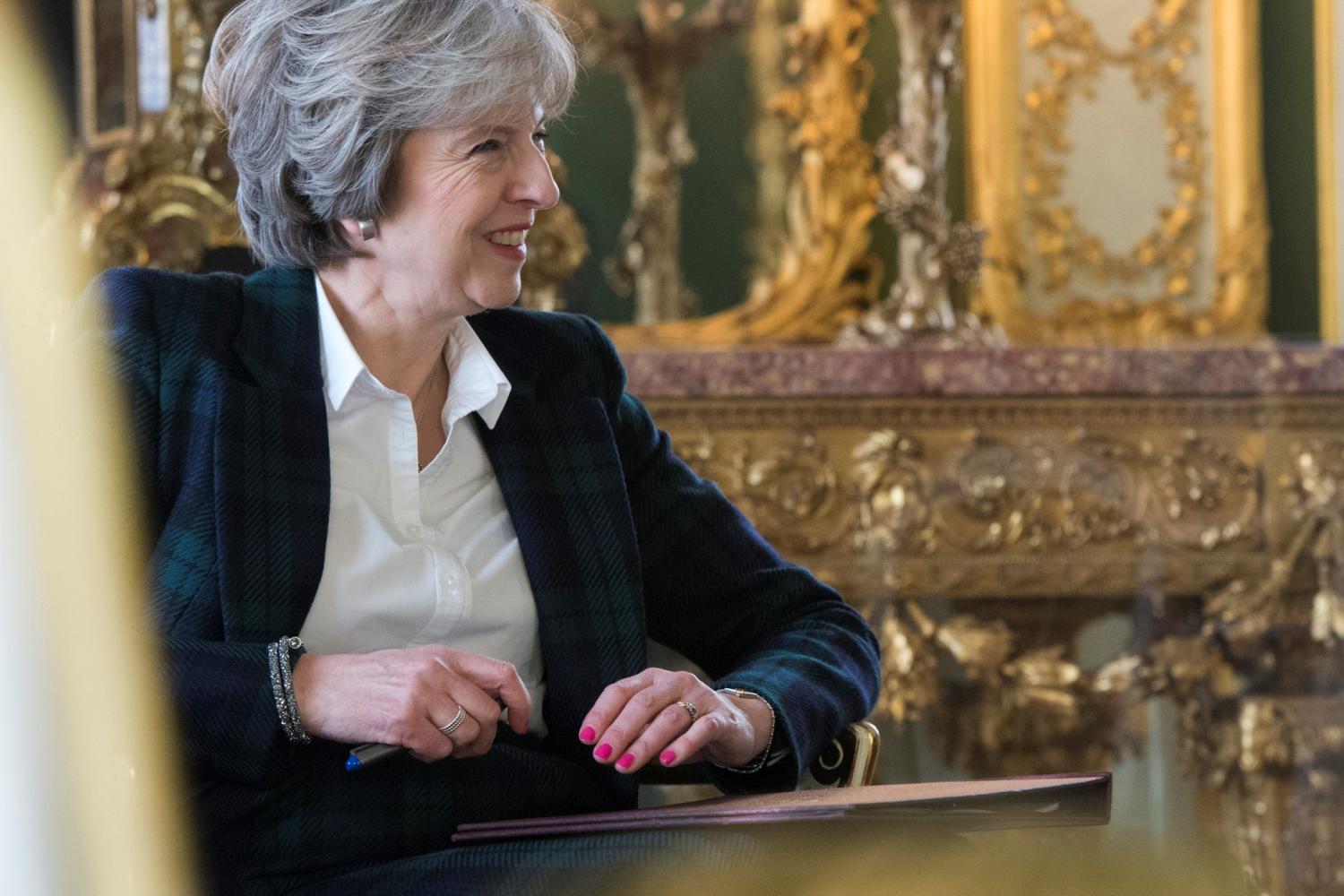In her two recent Brexit speeches, one delivered in London to the representatives of the 27 other EU-members and a second delivered two days later at Davos, May insisted that she wants a clean break: an exit from the single market (implicating the four freedoms) and from full membership of the customs union (implicating common trade negotiations).
As a replacement, she asked for a far-reaching trade agreement favoring British products and services, assuring them free access to the European market. It’s a perfect non-sequitur. You cannot insist on becoming a non-member of a club and then demand access to what is an advantage of membership. The basic assumption of the single market is acceptance of the whole deal. You give something that is in demand (in Britain’s case free accessibility of labour) in return for your particular needs (free access for products and services).
To lend more credence to her requests, May somewhat surprisingly brought up security by pointing to British nuclear armament, its contribution to NATO, the country’s permanent seat on the UN Security Council, and its potent intelligence service. This isn’t likely to impress, as all of this capacity already exists on the continent where France and Germany have started discussing the pooling of resources and getting serious on European defense.
The latter, while highly desirable, is also fiendishly difficult to negotiate, as states tend to cede sovereignty in defense-related areas only in late stages of federation. To bring in a non-member’s contribution, as welcome as British muscle might be, would be at best a protracted affair, impossible to negotiate within two years and thus necessarily excluded from a new overall deal between the EU and the UK.
Regardless of the deal Britain manages to get, May outlined her plan to resurrect a 'Global Britain', de facto turning the British Isles in a tax haven ('competitive tax rates [to] attract the world’s best companies and biggest investors to Britain') while cozying up to old (the US) and new (China) best friends.
The EU capitals and Brussels were clearly unimpressed. Open markets and fair taxation are far from being an EU-only concern; the OECD and the G20 are also working to bring the corporate tax principle 'you pay where you profit' into international reality (ironically the predecessor to the Cameron/May government was among the keenest on the subject within G20 and the OECD). Moreover, Donald Trump’s promise of tax holiday and a permanent lower tax rate for US firms will make them repatriate their overseas capital, not park it in a hypothetical low-tax London.
With the exception of a promise to continue common travel between Ireland and the UK, May didn’t even mention Brexit’s impact on the future of the UK. ‘Common travel’ or not, the only land-based British border with the EU will become much more of a barrier. Given the overall majority in Northern Ireland for remaining in the EU, the Sinn Féin party has unsurprisingly pulled out of Northern Ireland’s coalition government in Belfast. Nor will Scotland take a hard Brexit lying down, as Nicola Sturgeon has already made clear.
All of May’s cards are already known before the game has even started. The EU will not serve up May’s recently announced order for a 'full English Brexit'; it is highly unlikely that May will get what she wants, and what Boris Johnson has already promised to those who believe his Brexit fairytales.

